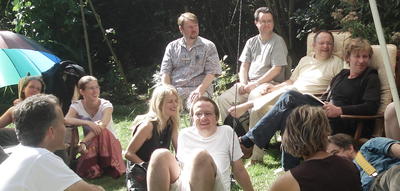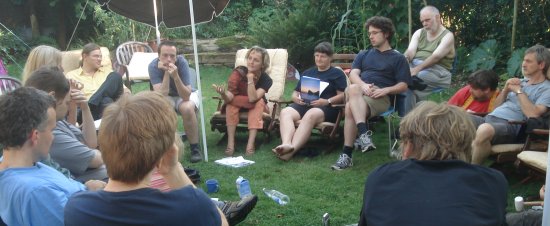 Here’s my submission for the Fourth Oekonux Conference (the official deadline for submissions ended two days ago).
Here’s my submission for the Fourth Oekonux Conference (the official deadline for submissions ended two days ago).
Title: Peer Production Everywhere
Subtitle: How Can We Do It And Where Can We Start?
Abstract:
I’ll talk about how commons-based peer production can be extended to all areas of life. How might a society based on peer production look like and which principles will be typical for such a society? I’ll also talk about which steps are reasonable to encourage the emergence of such a society.
 [Reposted from
[Reposted from  My last talk in
My last talk in 

